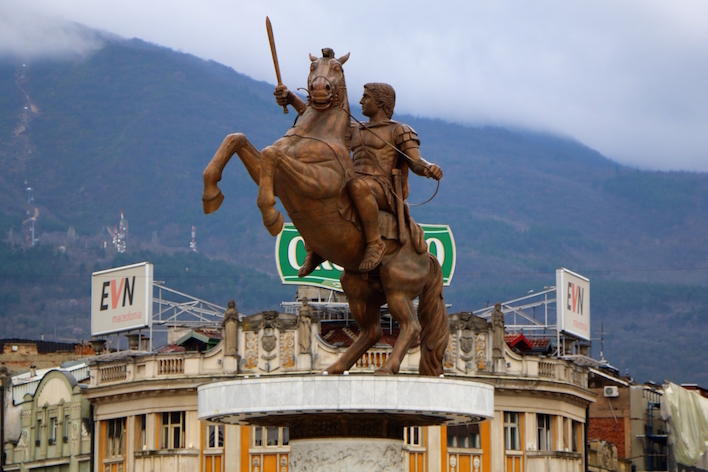The European Bank for Reconstruction and Development will lend €5.9 million to Macedonian state-owned electricity company ELEM for the purposes of building the first large-scale solar plant in the Balkan country.
ELEM will cover the additional €8.7 million needed for the development, which is hoped to mitigate the severe environmental issues in the country.
pv magazine reported on the proposed plans last year, though the official final agreement was released by the EBRD today.
This will be the first solar plant owned by ELEM and is expected to generate almost 15 gigawatt-hours of electricity annually, thereby becoming the largest in the country, with an associated carbon offset of 12,177 tons of CO2 annually.
The project is to be developed under the EBRD’S Green Economy Transition and Project Implementation Framework, ensuring sustainability best practices are adhered to during the entire span of the project.
The EBRD is further laying the groundwork for the former Yugoslav nation’s sustainability path through providing technical support in designing competitive tenders for 200 MW of additional solar and 150 MW of wind power.
Supplementary financial support of €75,000 each is being offered through the Italian Technical Cooperation Fund and the EBRD Shareholders Special Fund for the purposes of technical due diligence and environmental due diligence respectively.
Popular content
Such assistance shows proactive measures by the EDRD for addressing the findings of their report on how the “Balkan energy mix can be made more sustainable”, which addresses the economic inefficiencies of dependence on coal-fired generation, not to mention the associated social and environmental impacts.
In a fitting move for Macedonian de-carbonization plans, the planned solar project announced today is to rest on the site of an exhausted lignite (brown coal) mine which had supplied the primary power plant for the former Yugoslav nation.
The Associated Press reported that the EBRD project “will diversify the production mix of ELEM from coal and increase the share of renewables, providing more clean energy in a country and region with capacity shortages and high levels of carbon intensity”.
ELEM, which provides around 90% of the country’s electricity, has previously diversified its energy mix with the utility now generating 1,250 GWh from eight hydro plants and around 100 GWh from a wind farm. However, problems from the country’s heavy dependence on lignite are far too apparent.
The Macedonian capital of Skopje is widely considered to be Europe’s most polluted city, where air particle pollution levels are more than ten times higher than EU standards, leading to severe health risks and international calls for urgent action.
The government is taking steps forward, including setting a 23% by 2020 renewable energy target, though drastic measures will be needed to realize these targets and move away from the economy’s reliance on mining and a lignite-fired infrastructure.
This content is protected by copyright and may not be reused. If you want to cooperate with us and would like to reuse some of our content, please contact: editors@pv-magazine.com.


By submitting this form you agree to pv magazine using your data for the purposes of publishing your comment.
Your personal data will only be disclosed or otherwise transmitted to third parties for the purposes of spam filtering or if this is necessary for technical maintenance of the website. Any other transfer to third parties will not take place unless this is justified on the basis of applicable data protection regulations or if pv magazine is legally obliged to do so.
You may revoke this consent at any time with effect for the future, in which case your personal data will be deleted immediately. Otherwise, your data will be deleted if pv magazine has processed your request or the purpose of data storage is fulfilled.
Further information on data privacy can be found in our Data Protection Policy.